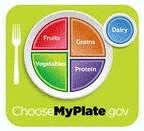Nutrition and Health Sciences, Department of

Department of Nutrition and Health Sciences: Dissertations, Theses, and Student Research
Date of this Version
8-2016
Document Type
Thesis
Citation
Richardson K. iCook 4-H intervention: Food-related behavior and intake of adult main meal preparers participating in a 5-state childhood obesity prevention study. [Masters]. Lincoln, NE: University of Nebraska-Lincoln; 2016.
Abstract
Childhood obesity affects 12.7 million children within the United States. The need for childhood obesity prevention programs is high. Research supports family-centered programs and health interventions rooted within the Social Cognitive Theory (SCT); the iCook 4-H program combines these attributes. The objective of this study was to assess differences in adult outcome variables between control and treatment participants and whether the program impacted food security status.
Participants consisted of adult-youth pairs (dyads) that included a 9-10 year-old child and their adult primary meal preparer. The focus of this project was to provide findings on adult participants only. The program was implemented in Maine, Nebraska, South Dakota, Tennessee, and West Virginia. Within each state, treatment (n=150) and control dyads (n=77) were recruited through Extension, 4-H, and community programs with flyers, in-person contact and email.
Dyads participated in 6 educational sessions over the course of 12 weeks that focused on culinary skills, family mealtime, healthful eating, meal planning, and physical activity. Adult outcomes collected included self-reported food intake, procurement, preparation and safety practices, parent-child feeding relationships, family mealtime routines, quality of life, food security status, program evaluation, BMI, and measured blood pressure. Descriptive statistics are presented for demographics at baseline. A linear mixed model approach was used to analyze data across time points (0, 4, and 12 months). A p < 0.10 level of significance was used. Statistical analyses were performed using IBM SPSS Statistics for Mac (Version 23.0, 2015, IBM Corp).
As a result of participating in the iCook 4-H program, adult treatment participants reported significant improvements in the following: fruit intake, shopping with a grocery list, using the “Nutrition Facts” label, eating less family meals at restaurants, receiving honest answers to questions from family members, food security status, planning weekly meals, enjoying making meals with their child, and kitchen skill confidence.
Advisor: Lisa Franzen-Castle


Comments
A thesis Presented to the Faculty of The Graduate College at the University of Nebraska In Partial Fulfillment of Requirements For the Degree of Master of Science, Major: Nutrition and Health Sciences,Under the Supervision of Professor Lisa Franzen-Castle. Lincoln, Nebraska: August, 2016
Copyright (c) 2016 Kyla Richardson